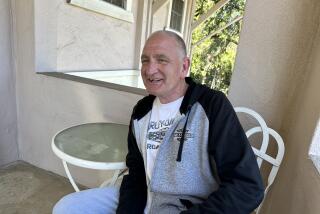Urine Tests Credited With Reducing Drug Use
- Share via
The recent development of low-cost urine testing is helping to reduce drug use in the San Gabriel Valley, according to Forest Tennant, a physician and executive director of the nonprofit Community Health Projects Inc. in West Covina.
Tennant, who also is mayor of West Covina and drug consultant to the Los Angeles Dodgers, told a group of school, community and law enforcement officials this week that since sophisticated urine testing became available last year, about 1,500 to 2,000 people a week have come to his 25-clinic network seeking drug-abuse treatment.
Community Health Projects is the only organization performing urine tests in the San Gabriel Valley, Tennant said, and its clients include parents, drug-treatment groups and the state Department of Corrections.
“Counseling somebody on drugs is a waste of your time,” Tennant said. “They don’t need anything except someone saying, ‘You’re going to take a urine test and stay clean.’ ”
Urine testing and other strategies against drug use are described in a booklet written by Tennant, “How to Identify, Prevent and Guide Treatment of Drug Abuse by Youth.” The handbook, which costs $9, details the medical and social effects of marijuana, cocaine and phencyclidine (PCP) use, as well as methods for detecting their use.
Tennant said that a parent can bring a child’s urine sample into one of his clinics and for $15 to $30 can have it tested for up to 50 drugs. The information will be kept confidential if the parent wishes, he said.
“People tell me that they know when a person is using drugs,” Tennant said. “But I’m someone with a trained eye, who is used to seeing these people every day, and I can only tell about one-third of the drug users.”
He said that urine testing, which is becoming more common among employers and sports organizations, is an accurate technique for identifying drug use, as well as an effective method of treatment.
About 75% of individuals who abstain from drug use because they have to take weekly urine tests for three or four months can kick their habit, Tennant said.
“You don’t have to do anything else,” he said. “Just stay bone dry.”
Although Tennant said that he does not advocate urine testing in schools, he said that students using drugs should be sent home just like any other student who is ill.
“I think that a kid going to school (who shows signs of drug use) should be sent home with a note saying, ‘Don’t send him back until you can guarantee he’s not on drugs,” Tennant said, adding that a urine test would be the only way to guarantee abstinence.
Because more people are conducting urine tests, Tennant said, drug use is being detected earlier, while it is still treatable. Often, people who end up in drug treatment programs are “dead-end” cases who are seeking help only out of desperation, he said.
More to Read
Sign up for Essential California
The most important California stories and recommendations in your inbox every morning.
You may occasionally receive promotional content from the Los Angeles Times.










